Recently Harvard academics Lisa D. Ordonez, Maurice E. Schweitzer, Adam D. Galinsky, and Max H. Bazerman wrote a piece in the Academy of Management Journal highlighting a range of serious problems with the overuse and uncritical use of goal setting (link here). They essentially argue that goal setting often comes with a series of side effects that are rarely considered that can have significant negative effects for individuals and organizations. Some of their arguments echo ones I have made about the overuse and abuse of goal setting as a panacea for all career development problems for instance see this piece and this one.
The authors pose these questions (and suggestions for addressing issues) that we should ask before jumping into goal setting.
1. Are the goals too specific? – Narrow goals can blind people to important aspect of a problem.
Suggestion: Be sure that goals are comprehensive and include all of the critical components for firm success (e.g., quantity and quality).
2. Are the goals too challenging? What will happen if goals are not met? How will individual employees and outcomes be evaluated? Will failure harm motivation and self-efficacy?
Suggestion: Provide skills and training to enable employees to reach goals. Avoid harsh punishment for failure to reach a goal.
3. Who sets the goals? People will become more committed to goals they help to set. At the same time, people may be tempted to set easy-to-reach goals.
Suggestion: Allow transparency in the goal-setting process and involve more than one person or unit.
4. Is the time horizon appropriate? Short-term goals may harm long-term performance.
Suggestion: Be sure that short-term efforts to reach a goal do not harm investment in long-term outcomes.
5. How might goals influence risk taking? Unmet goals may induce risk taking.
Suggestion: Be sure to articulate acceptable levels of risk.
6. How might goals motivate unethical behavior? Goals narrow focus. Employees with goals are less likely to recognize ethical issues, and more likely to rationalize their unethical behavior.
Suggestion: Multiple safeguards may be necessary to ensure ethical behavior while attaining goals (e.g., leaders as exemplars of ethical behavior, making the costs of cheating far greater than the benefit, strong oversight).
7. Can goals be idiosyncratically tailored for individual abilities and circumstances while preserving fairness? Individual differences may make standardized goals inappropriate, yet unequal goals may be unfair.
Suggestion: If possible, strive to set goals that use common standards and account for individual variation.
8. How will goals influence organizational culture? Individual goals may harm cooperation and corrode organizational culture.
Suggestion: If cooperation is essential, consider setting team-based rather than individual goals.Think carefully about the values that the specific, challenging goals convey.
9. Are individuals intrinsically motivated? Goal setting can harm intrinsic motivation. Assess intrinsic motivation and avoid setting goals when intrinsic motivation is high.
10. What type of goal (performance or learning) is most appropriate given the ultimate objectives of the organization? By focusing on performance goals, employees may fail to search for better strategies and fail to learn.
Suggestion: In complex, changing environments, learning goals may be more effective than performance goals
Goal setting in my mind can encourage people and organisations to focus too narrowly on only a couple of things in their environment, and this runs the risk of them failing to see the bigger picture, and being ill-prepared to deal with change, complexity and innovation in their environments (see this piece).
Goals appear to be most effective in relatively unchanging environments, in the short term and where the problem the goal is addressing is clear and relatively straightforward. The trouble is that these circumstances do not occur in real life as often as many people assume when they chose to set goals or blindly engage in goal setting.
Another problem is the type of goals that people try to set. We can distinguish between performance and learning goals. Performance goals are the ones we usually associate with goal-setting, for instance -” I will increase my results on the test by 30% by the end of the quarter“. A very common version of these are SMART goals – Specific Measurable, Achieveable, Realistic and Time-based.
Learning goals generally refer to increase knowledge skills and abilities in a defined area. “Increasing understanding of Monty Python sketches”, “mastering the use of the comfy chair”, “remembering your wife’s recipe for lemon ice cream” are all examples of learning goals.
Changing circumstances mean that SMART performance goals can become less tenable, or even impossible. Furthermore the desirability of attaining such goals can become questionable as the scene changes over time. If your company’s goal was to sell twice of much of the drug “Bowel-shatterer-Pro” over the next 12 months, this goal might become inappropriate if during that time clinical trials demonstrated the drug to be a danger to the health of those taking it.
Learning goals are less susceptible to change in this way, and thus are more likely to be a useful strategy in a changing environment, or even over the longer term. However outside of specific learning environments like schools, colleges and Universities, the use of learning goals is less common.
To my mind both forms of goal setting – Performance and Learning – still suffer from inducing a form of selective blindness – to focus on one or two things at the expense of all else. It is not at all clear there is any evidence that people in real life (ie not in psychology laboratories) really can or do behave like this – unless they are the rare few that has a coterie of minders and managers surrounding them to shut out distractions and hold back change, most of us have to deal with change and complexity on a daily basis. Think about how we spontaneously look to support students completing High School exams as parents, or coaches supporting elite athletes – we eliminate distractions like cooking or cleaning for themselves, we might monitor social distractions, etc. In other words we try to recreate laboratory conditions to some extent.
So where does this leave goal-setting? Well I think we need to get realistic about what goals can and cannot do. There is little doubt that in the short-term, with relatively unchanging circumstances and with relatively straightforward problems goals can under some circumstances be useful – the evidence points to this. However as figure 1 shows, as problems get more complex and situations become more changeable, goal-setting as a strategy becomes much more questionable.
Figure 1 – Goal setting strategy for short-term situations
Now consider the use of goals in the medium to longer term (i.e. any time horizon beyond a few months or more). The situation here is quite different. Even in relatively unchanging environments, the amount of time involved inevitably introduces some change making goals less effective, and sometimes it can also make the problem more complex. Here we need what I call “Fuzzy Goals” – goals that are more Situational, Multifaceted, Adaptable, Risk-Taking and Transformational – David Winter’s alternative to the restrictive traditional SMART goal (see his article on this here).
As things get more complex and changeable, goal-setting as a strategy becomes even more questionable and we may be better off thinking in broader, more creative and flexible terms that permit more openness, and more of a wait, see, learn, adapt, respond, try kind of methodology, something akin to my Beyond Personal Mastery® model of creativity (see here for more details)
Figure 2. Goal Setting strategy for medium and long term situations
Conclusions
What I think is instructive looking at Figures 1 and 2, is how traditional SMART goals may only be really effective in one of the situations out of the 8 presented. This may provide a clue to the problems of goal-setting – most problems are more complex, most situations are more changeable, and most people want to employ goal setting over too longer a time frame. This is why in the Chaos Theory of Careers, Goal setting is seen as a form of simplifying complexity and often oversimplifying complexity. See here for an extended treatment of this point
It is time we recognised the valuable contribution that goal setting can make, but at the same time appreciate that they may work best in a very limited and prescribed context and as Lisa Ordonez, Maurice Schweitzer and colleagues point out, they be accompanied by a lot of unanticipated and undesirable consequences.
I’ve been reading Goals Gone Wild: The Systematic Side Effects of Overprescribing Goal Setting by Lisa D. Ordonez, Maurice E. Schweitzer, Adam D. Galinsky, and Max H. Bazerman .
Reference:
Lisa Ordonez, Maurice Schweitzer, Adam Galinsky, Max Bazerman, Goals Gone Wild: The Systematic Side Effects of Overprescribing Goal-Setting, Academy of Management Perspectives Februry 2009 (PDF here).
Related Posts

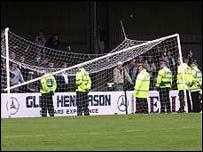
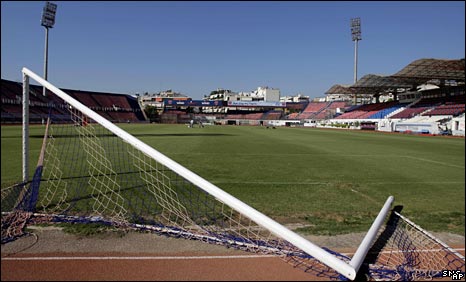

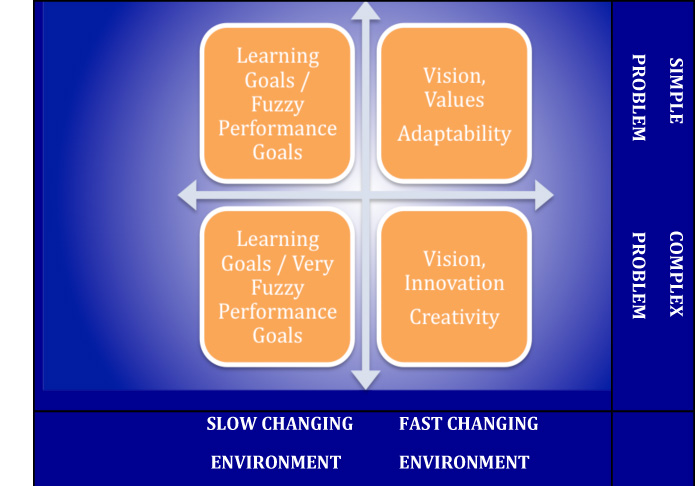
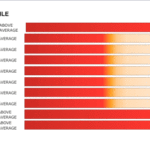

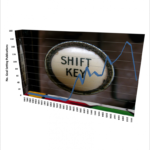


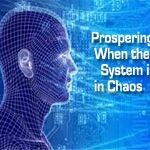

Pingback: Tweets that mention Goals Gone Wild: The Systematic Side Effects of Overprescribing Goal Setting | The Factory -- Topsy.com
Useful and interesting analysis, thanks.